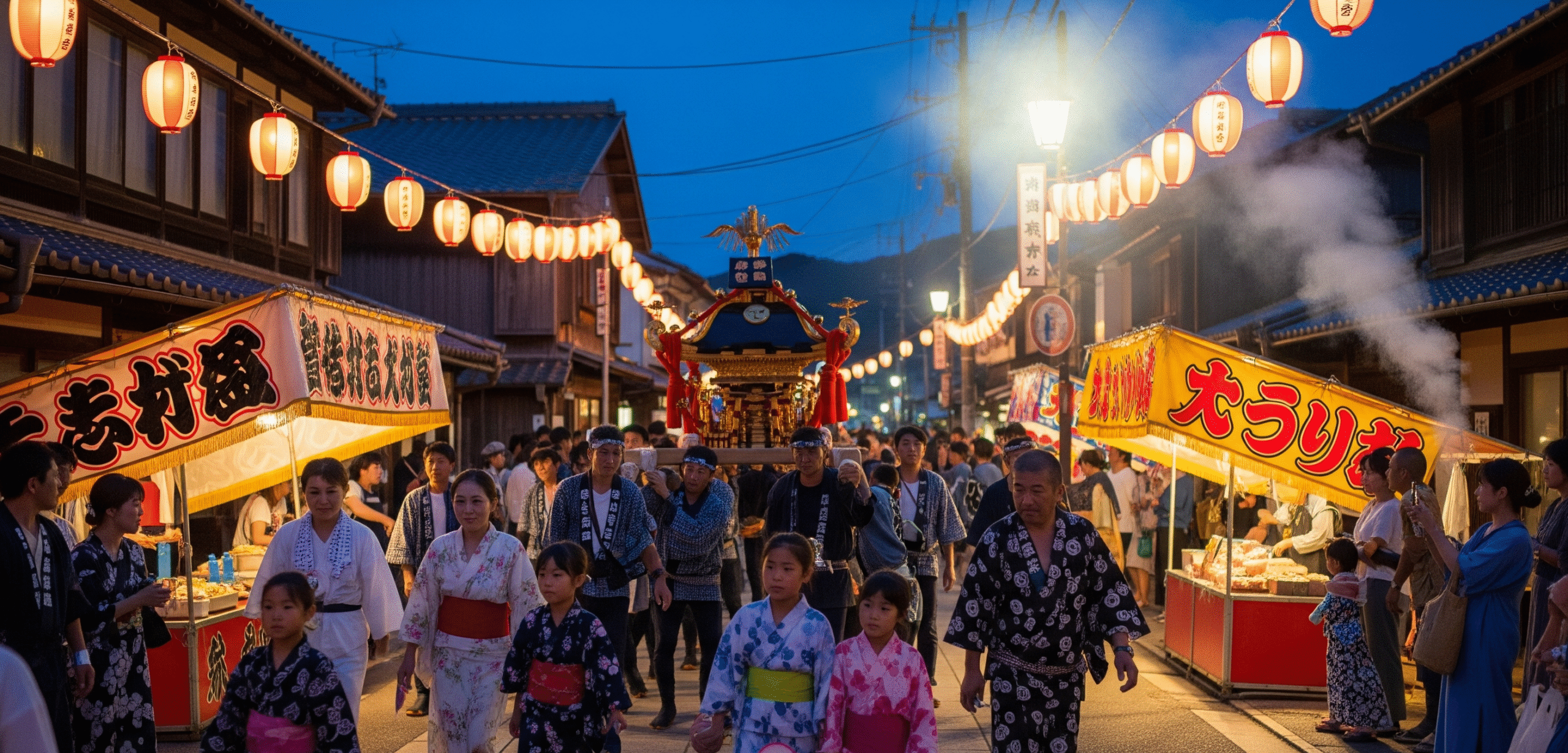Understanding Japan’s Festivals: Community, Reverence, Continuity

Japan’s festivals, or matsuri, are more than lively parades and beautiful lanterns. They are deeply rooted in centuries-old traditions and reflect the Japanese way of life — where respect, community, and cultural continuity take center stage. Understanding these festivals is like holding a mirror to the values that define Japan.
The Heart of Matsuri: More Than Celebration
Cultural Anchors – Festivals preserve traditions that have been passed down through generations, ensuring that customs and rituals remain alive in today’s fast-paced world.
Respect in Practice – From bowing at shrines to wearing traditional clothes, matsuri encourage acts of reverence toward ancestors, gods (kami), and nature.
Togetherness of Community – They bring neighborhoods together, where every individual, young or old, plays a role, symbolizing harmony and cooperation.
Examples of Famous Festivals
Gion Matsuri (Kyoto) – Known for grand floats and elaborate processions, this festival highlights discipline, teamwork, and respect for craft.
Obon – A time to honor ancestors, where families gather, light lanterns, and dance. It shows how remembrance and respect remain central to Japanese life.
Tanabata – A romantic festival where people write wishes on colorful strips of paper and hang them on bamboo. It reflects the blending of hope, tradition, and creativity.
What They Reveal About Japan
Respect for Nature and Ancestors – Festivals are tied to seasonal changes and spiritual rituals, underscoring Japan’s harmony with nature.
Tradition in Modern Times – Even in high-tech Japan, people pause during matsuri to connect with their roots.
Community Spirit – Festivals are not just spectacles; they remind people that individual joy is amplified through collective celebration.
Conclusion
Japanese festivals are not just events on the calendar — they are powerful lessons in respect, unity, and cultural pride. For learners of Japanese language or culture, attending or even studying matsuri offers a direct glimpse into the values that shape Japan’s identity.